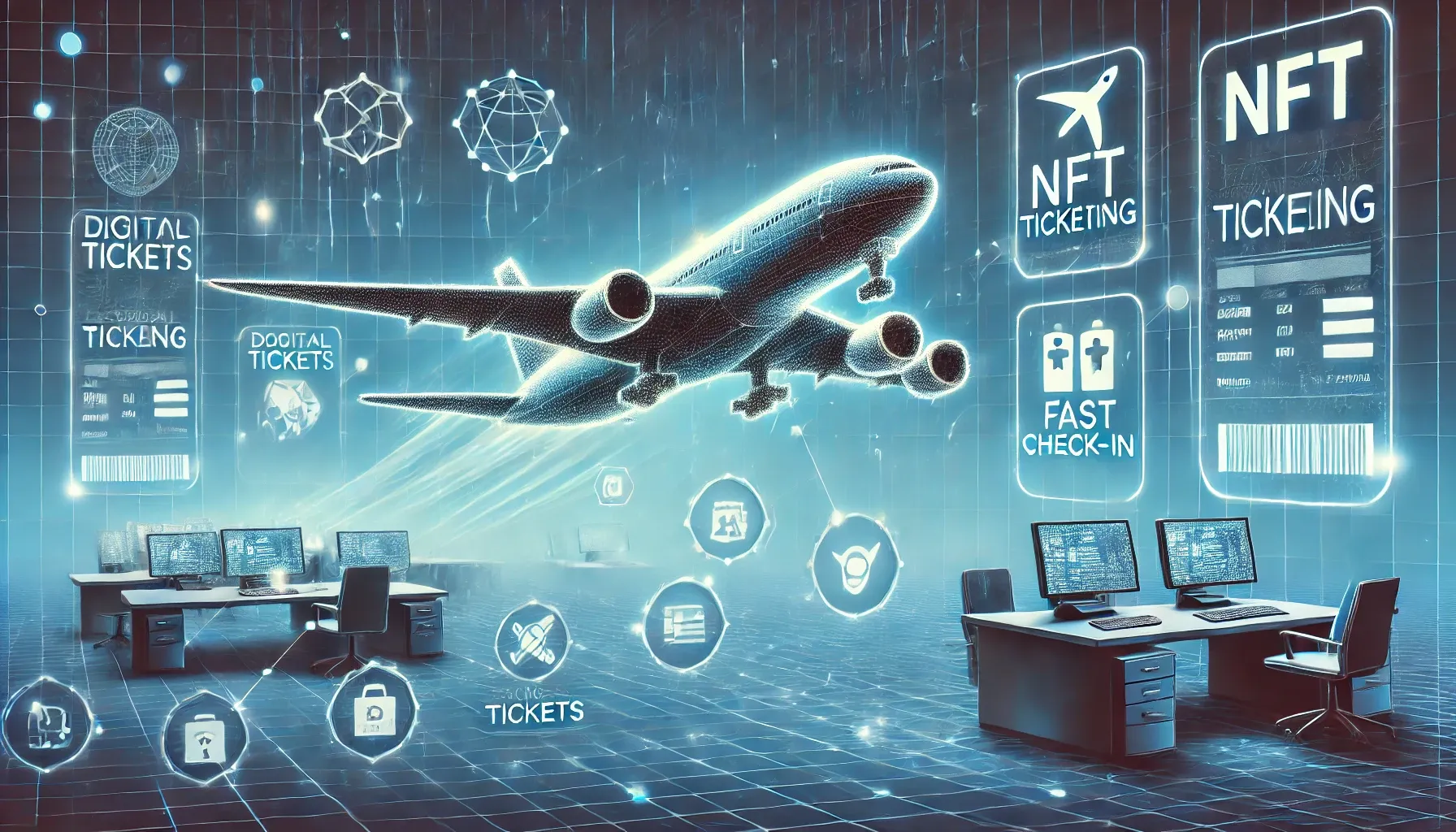
NFT Ticketing: Revolutionizing the Airline Sector and Improving Traveler Experience
Non-Fungible Tokens (NFTs) represent a major technological advancement in airline operations, improving customer engagement, operational efficiency, and security. This shift is taking place as airlines play a bigger role in the world economy. In 2024, the airline industry is projected to bring in $996 billion, demonstrating its enormous scope and influence. Since it is anticipated that five billion people will travel by air this year, airlines play a vital role in both the global economy and the mobility of a sizable section of the population.
Using NFT Ticketing by Top Airlines
Numerous progressive airlines have adopted NFT ticketing, each launching into this cutting-edge market with unique products.
- Air Europa (Began in 2021). NFTickets, which offered exclusive experiences and one-of-a-kind artwork, were the first.
- Flybondi. Increased client loyalty through NFTs for ticketing on specific routes (began in 2022).
- Turkish Airlines (Beginning in 2023): Started their first NFT ticketing campaign.
- Air France (Begun in 2022): Enhanced passenger loyalty by integrating NFTs into their rewards program.
These airlines are establishing industry standards and demonstrating how NFT ticketing can completely transform how airlines function and engage with their patrons.
Benefits for both passengers and airlines
A number of advantages that improve operational capabilities and passenger experiences come with the implementation of NFT ticketing systems.
- Increased Security. Immutable tickets guarantee ticket authenticity and lessen fraud.
- A rise in revenue. Presents dynamic pricing options and premium pricing.
- Economical effectiveness. Lowers expenses related to conventional ticket distribution and printing.
- Creative ways to engage customers. Airlines can provide customized promotions, loyalty plans, and other services thanks to NFTs.
Improvements in Security and Finance with NFT Ticketing
NFT ticketing offers substantial financial opportunities as well as security enhancements.
A decrease in fraud
Blockchain technology greatly reduces the possibility of fake tickets. The tamper-proof and unique characteristics of each NFT ticket guarantee that they cannot be copied or faked, shielding the airline and travelers from possible fraud.
Restricted Reselling
In order to control the resale market, airlines can incorporate particular terms into the NFTs. This deters scalping and unregulated secondary markets while guaranteeing that tickets are sold at fair prices and allowing airlines to keep a portion of resale profits.
Enhanced sources of income
Flexible pricing models, like demand-based pricing or the sale of rare collectible tickets for well-known events, can be incorporated by airlines into NFT tickets to increase initial sales revenue. Furthermore, NFTs can offer upgradeable features that passengers can activate for a fee, like better seats or additional services.
Cost cuts
By moving to NFT-based systems, printing and distribution expenses can be decreased because fewer physical ticketing materials and procedures are required. Additionally, it lessens the need for labor-intensive manual checks and balances, which lowers labor costs related to ticket sales and verification.
Compliance and Data Security
NFTs offer a safe method for managing private passenger information. The decentralized nature of blockchain lowers the possibility of data breaches by preventing the central storage of passenger information. Additionally, the NFTs can be programmed to comply with international security standards, guaranteeing that all ticket sales automatically satisfy legal requirements.
Extending the benefits for passengers
NFT ticketing improves the traveler experience in a number of ways.
- Ownership and authenticity are assured. Verifies each ticket's authenticity and ownership by the buyer.
- Smooth travel. Blockchain verification expedites check-in procedures.
- Promotions and Loyalty Systems. To improve customer value and retention, airlines can incorporate NFT-based loyalty programs, mileage accrual, and other promotions.
Real-World Example. With an NFT ticket, an Air Europa traveler can take advantage of pre-flight lounge access, dynamic in-flight upgrades, and post-flight perks, making their ticket a long-term value investment.
In conclusion
In the airline industry, NFT ticketing is establishing new benchmarks for efficiency, security, and client satisfaction. These digital tokens help airlines innovate, secure operations, and improve service offerings. They are more than just new technologies. NFT technology will open up even more possibilities for airlines and their customers as it develops further, ensuring a more safe, effective, and fulfilling travel experience in the future.